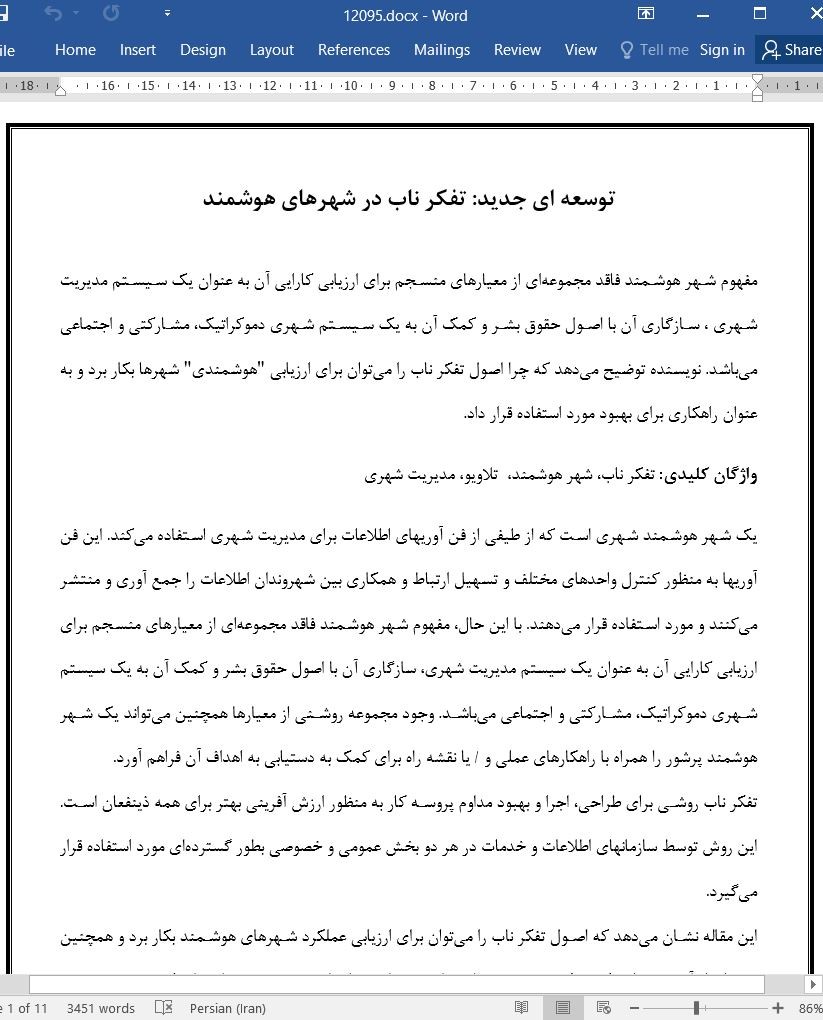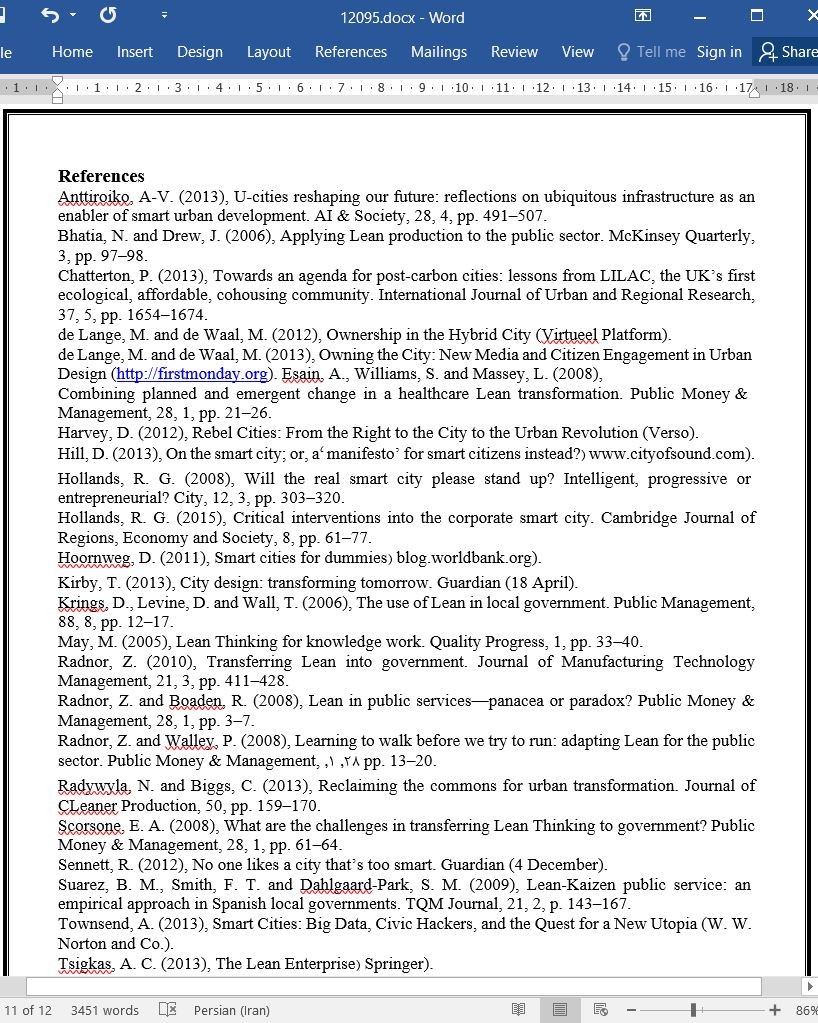
توسعه ای جدید: تفکر ناب در شهرهای هوشمند
مفهوم شهر هوشمند فاقد مجموعهای از معیارهای منسجم برای ارزیابی کارایی آن به عنوان یک سیستم مدیریت شهری ، سازگاری آن با اصول حقوق بشر و کمک آن به یک سیستم شهری دموکراتیک، مشارکتی و اجتماعی میباشد. نویسنده توضیح میدهد که چرا اصول تفکر ناب را میتوان برای ارزیابی "هوشمندی" شهرها بکار برد و به عنوان راهکاری برای بهبود مورد استفاده قرار داد.
یک شهر هوشمند شهری است که از طیفی از فن آوریهای اطلاعات برای مدیریت شهری استفاده میکند. این فن آوریها به منظور کنترل واحدهای مختلف و تسهیل ارتباط و همکاری بین شهروندان اطلاعات را جمع آوری و منتشر میکنند و مورد استفاده قرار میدهند. با این حال، مفهوم شهر هوشمند فاقد مجموعهای از معیارهای منسجم برای ارزیابی کارایی آن به عنوان یک سیستم مدیریت شهری، سازگاری آن با اصول حقوق بشر و کمک آن به یک سیستم شهری دموکراتیک، مشارکتی و اجتماعی میباشد. وجود مجموعه روشنی از معیارها همچنین میتواند یک شهر هوشمند پرشور را همراه با راهکارهای عملی و / یا نقشه راه برای کمک به دستیابی به اهداف آن فراهم آورد.
تفکر ناب روشی برای طراحی، اجرا و بهبود مداوم پروسه کار به منظور ارزش آفرینی بهتر برای همه ذینفعان است. این روش توسط سازمانهای اطلاعات و خدمات در هر دو بخش عمومی و خصوصی بطور گستردهای مورد استفاده قرار میگیرد.
این مقاله نشان میدهد که اصول تفکر ناب را میتوان برای ارزیابی عملکرد شهرهای هوشمند بکار برد و همچنین میتوان از آن به عنوان یک رویکرد مدیریت عملی برای دستیابی به اهداف شهر هوشمند استفاده کرد.
The smart city concept lacks a set of coherent criteria for evaluating its effectiveness as an urban management system, its compatibility with human rights principles, and its contribution to a democratic, participatory, social urban regime. The author explains why Lean Thinking principles can be applied to evaluate the ‘smartness’ of cities and serve as guidelines for improvement.
A smart city is a city that employs an array of information technologies for its urban management. These technologies gather, disperse, and use information to control different facilities and to facilitate communication and co-operation between its citizens. The smart city concept, however, lacks a set of coherent criteria for the evaluation of its effectiveness as an urban management system, of its compatibility with human rights principles, and of its contribution to a democratic, participatory, social urban regime. A clear set of criteria would also provide an aspiring smart city with practical guidelines and/or a roadmap to help it achieve its goals.
Lean Thinking is a method of designing, performing, and continuously improving the work process to produce better value for all stakeholders. The method is widely used by information and service organizations in both the private and public sectors.
This article shows that Lean Thinking principles can be applied to evaluate the performance of smart cities, and may serve as a practical management approach towards achieving smart city goals.
یک شهر هوشمند واقعاً چگونه است؟
تفکر ناب چیست؟
استفاده از تفکر ناب برای ارزیابی و هدایت یک شهر هوشمند
مورد تلاویو
جذبه
احترام به مردم
کایزن (بهبود مستمر)
جلوگیری از مودا ( فعالیتهای بدون ارزش افزوده)
هی جون کا
گمبا
کانبان
بحث و نتیجه گیری
منابع
What actually is a smart city?
What is Lean Thinking?
Using Lean Thinking to evaluate and guide a smart city
The case of Tel Aviv
Pull
Respect for people
Heijunka
Gemba
Kanban
Discussion and conclusions
References
- اصل مقاله انگلیسی با فرمت ورد (word) با قابلیت ویرایش
- ترجمه فارسی مقاله با فرمت ورد (word) با قابلیت ویرایش، بدون آرم سایت ای ترجمه
- ترجمه فارسی مقاله با فرمت pdf، بدون آرم سایت ای ترجمه


